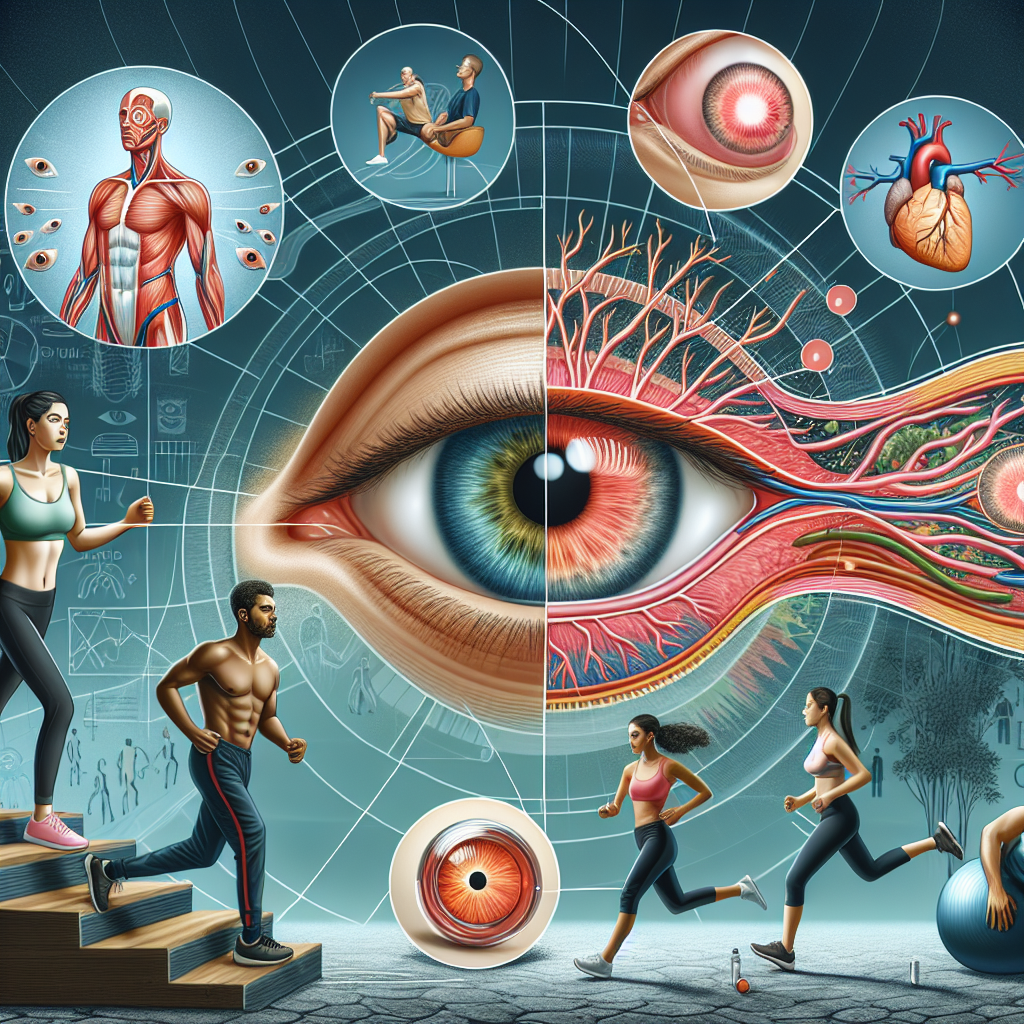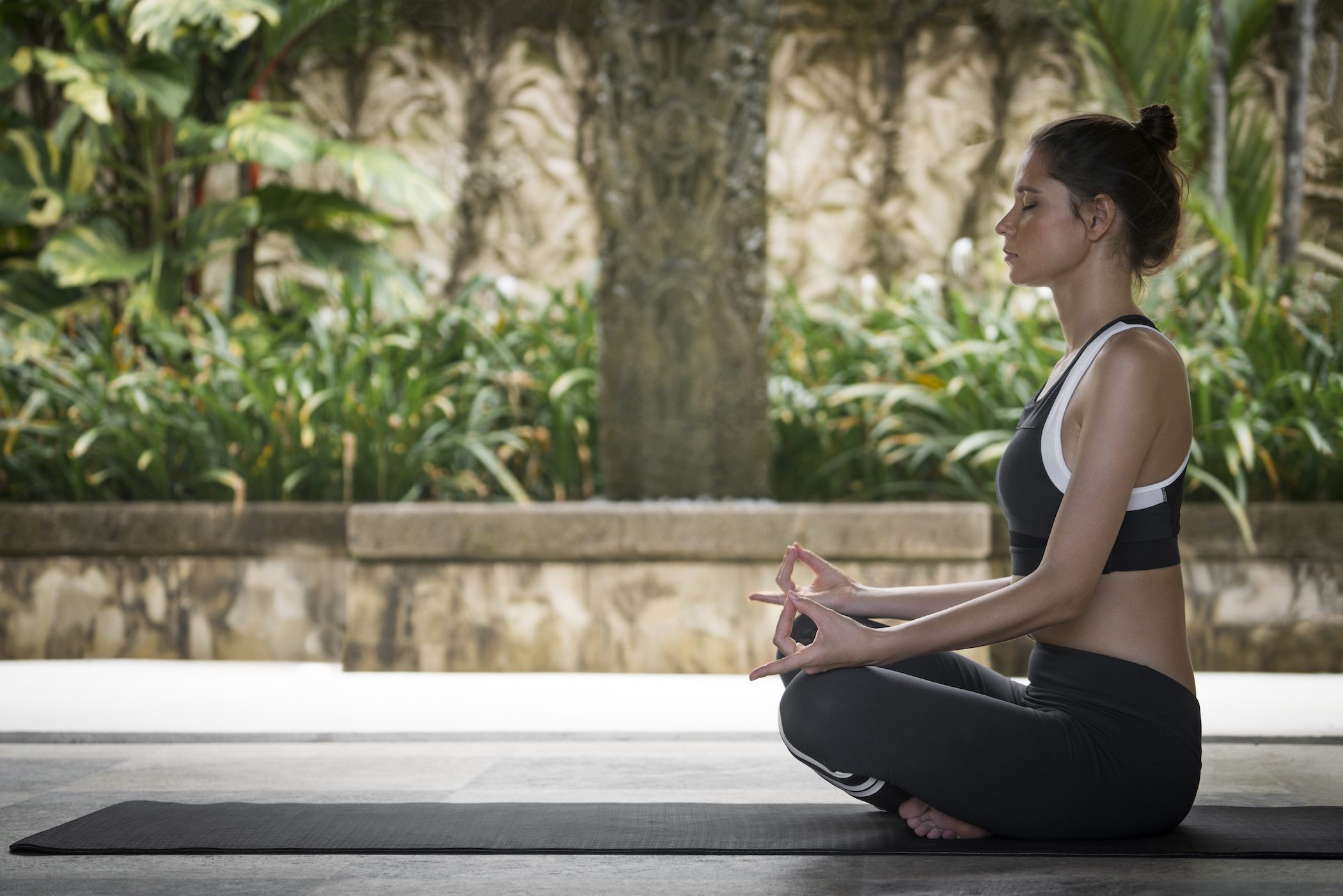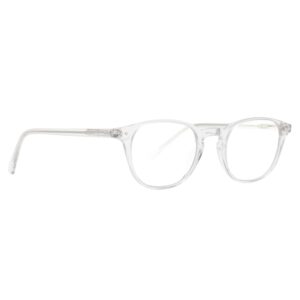
Key Takeaways
-
Engaging in regular physical exercise can significantly reduce the risk of vision loss and eye diseases.
-
Specific nutrients like Omega-3 fatty acids, lutein, and zeaxanthin are crucial for maintaining good eye health.
-
A combination of aerobic, strength, and eye-specific exercises can enhance eye function and protect against age-related eye conditions.
-
Integrating a diet rich in eye-friendly nutrients with a consistent exercise routine is key to optimal eye health.
-
Understanding the proper dosage and potential risks of supplements is important for safe usage and maximum benefit for your eyes.
Unlock the Secrets to Enhancing Eye Health
When it comes to keeping our eyes healthy, most of us know that eating carrots is good for our vision. But did you know that regular exercise and certain supplements can be just as beneficial, if not more so, for our eye health? It’s not just about the beta-carotene; it’s about a holistic approach to maintaining the well-being of our eyes through both physical activity and nutritional support.
The Dynamic Duo: Exercise and Supplements
Exercise is not just great for your waistline; it’s also fantastic for your eyes. Regular physical activity improves blood circulation, which means more oxygen and nutrients can reach the eyes. This can help to ward off age-related vision problems like macular degeneration and glaucoma. Besides that, some supplements provide specific nutrients that your eyes need to stay sharp and clear.
Why Your Eyes Deserve More Than Just Carrots
While carrots are great for eye health, they’re not the only heroes in the story. A diet rich in a variety of nutrients is essential for maintaining good vision. Omega-3 fatty acids, for example, are vital for retinal health, while antioxidants like lutein and zeaxanthin help protect your eyes from harmful light. Combining these nutrients with regular exercise can create a powerhouse of protection for your eyes.
Core Exercises for Stellar Sight
When you think of exercise, you probably envision jogging, lifting weights, or maybe even swimming. But did you know there are specific exercises that can benefit your eyes? That’s right, in addition to general physical activity, certain exercises can directly impact your eye health. Let’s dive into how you can get moving for better vision.
Aerobic Workouts: Your Eyes’ Best Ally

Cardiovascular exercises such as walking, running, or cycling are not only good for your heart but also for your eyes. They increase the flow of blood to the optic nerve and the retina, which can help to prevent problems like glaucoma. Most importantly, you don’t have to be an athlete; even a brisk daily walk can make a difference.
Yoga for Your Eyes: Stretching Beyond the Screen

“Immersive Yoga — The Newark Museum of Art” from newarkmuseumart.org and used with no modifications.
Our eyes need exercise just like the rest of our body. Simple eye movements can strengthen the eye muscles and improve focus, while relaxation techniques can help alleviate eye strain. Yoga exercises, such as palming and focusing on different distances, can be particularly beneficial for those who spend a lot of time in front of screens.
-
Palming: Rub your hands together to generate warmth, then gently place them over your closed eyes without pressing. The warmth and darkness will soothe your eyes.
-
Focus shifting: Hold a pen at arm’s length, focus on it, and slowly bring it closer until it’s about 6 inches away from your nose. Then slowly move it back, keeping your focus on the pen.
Remember, consistency is key. Incorporating these exercises into your daily routine can lead to better eye health over time.
Strength Training: Building Vision Vitality

It’s not just aerobic exercises that can benefit your eyes. Strength training can also play a role in maintaining healthy intraocular pressure, which is vital for preventing conditions like glaucoma. Activities such as lifting weights can improve overall circulation, which in turn benefits the tiny blood vessels in your eyes.
Vital Supplements for Visual Clarity

The ABCs of Eye-Friendly Nutrients
Good nutrition is paramount when it comes to eye health. Certain vitamins and minerals can help preserve your vision and may even improve it. Vitamins A, C, and E are antioxidants that help protect your eyes from damage. Zinc contributes to the health of the retina, while copper supports the health of the blood vessels in your eyes.
Omega-3s: The Fatty Acids Your Eyes Crave
Omega-3 fatty acids, particularly EPA and DHA, are essential for retinal health and may help prevent dry eye syndrome. They are found in high concentrations in the retina and are believed to provide a range of benefits for eye health, including the potential to reduce the risk of macular degeneration and cataract formation.
Lutein and Zeaxanthin: Nature’s Sunglasses
Lutein and zeaxanthin are two types of carotenoids found in high concentrations within the macula, a small area of the retina responsible for central vision. They act like natural sunglasses by protecting your eyes from harmful blue light. Green leafy vegetables like spinach and kale are excellent sources of these nutrients.
Merging Movement with Nutrition

Combining regular exercise with a diet rich in eye-friendly nutrients can significantly amplify the benefits for your eye health. It’s not just about doing the right things but doing them together that creates a synergistic effect, ensuring your eyes get all they need to stay healthy.
Creating an Eye-Health Routine: Exercise Meets Diet
Developing a routine that includes both exercise and proper nutrition is easier than you think. Start with simple changes, like a daily walk paired with a smoothie that includes fruits and vegetables high in eye-friendly vitamins. Gradually, these habits will become second nature, and your eyes will thank you for it.
Scheduling Success: Timing Your Intake and Activity
To get the most out of your eye-health routine, timing is everything. Eating a nutrient-rich meal a couple of hours before exercising can provide the energy you need for your workout and the nutrients your eyes need to recover and strengthen afterward.
Tracking Progress: What To Look For
When it comes to tracking the health of your eyes, pay attention to signs like improved visual clarity, less eye fatigue, and perhaps even a reduced need for corrective lenses. Keep a journal of your dietary intake, exercise routines, and any changes you notice in your vision to discuss with your eye doctor during check-ups.
For example, you might start noticing less strain when reading or working on the computer after incorporating eye exercises and nutrients like Omega-3s into your daily routine.
Maximizing Benefits, Minimizing Risks
Navigating Exercise with Preexisting Eye Conditions
If you have preexisting eye conditions, it’s important to approach exercise with caution. Some activities may need to be modified to avoid increasing eye pressure or causing discomfort. Always consult with your eye care professional before starting any new exercise regimen.
Supplement Savvy: Dosage and Safety
While supplements can be a great way to get the nutrients your eyes need, it’s crucial to take them responsibly. Stick to the recommended dosages, as excessive intake can sometimes lead to adverse effects. If you’re unsure about what to take or how much, a conversation with your healthcare provider can provide guidance.
By combining a tailored exercise program with the right nutritional supplements, you can take significant strides towards protecting and enhancing your eye health. Remember, the best approach is a proactive one, where regular check-ups complement your daily eye-care routine, ensuring that your vision remains clear and strong for years to come.
When to Seek Professional Guidance
If you’re taking steps to improve your eye health through exercise and nutrition but are noticing no improvement or, worse, a decline in your vision, it’s time to consult an eye care professional. This is especially true if you experience symptoms such as pain, flashes of light, new floaters, or a sudden loss of vision. An expert’s insight is crucial to ensure you’re on the right track and not inadvertently causing harm to your eyes.
Frequently Asked Questions (FAQ)
When it comes to eye health, many people have questions about the impact of exercise and the role of supplements. Let’s address some of the most common inquiries to help clarify how you can best care for your eyes.
Can exercises actually improve my eyesight?
Yes, certain exercises can help improve your eyesight. While they won’t cure refractive errors like nearsightedness or farsightedness, exercises that strengthen the eye muscles and improve blood flow can enhance visual acuity and reduce eye strain. Remember, though, that results can vary from person to person.
How long does it take to see benefits in my eye health from exercising?
The timeline for seeing improvements in eye health from exercising can differ based on individual health, the type of exercises performed, and the consistency of your routine. Some people may notice changes within a few weeks, while for others, it may take several months of consistent effort.
Patience and persistence are key. It’s important to maintain a regular exercise schedule and follow a balanced diet rich in eye-friendly nutrients to maximize the potential benefits for your eye health.
Are there any supplements I should avoid?
While most eye health supplements are safe when used as directed, it’s important to avoid taking excessive amounts, which can lead to toxicity or adverse interactions with other medications. Always consult with a healthcare professional before starting any new supplement, especially if you have existing health conditions or are taking other medications.
What time of the day is best for eye health exercises?
There isn’t a one-size-fits-all answer to the best time of day for eye exercises. It largely depends on your schedule and when you can consistently fit them in. However, taking breaks to perform eye exercises during periods of prolonged screen use can be particularly beneficial in reducing eye strain and fatigue.
How can I monitor the health of my eyes?
Monitoring the health of your eyes can be done through regular eye exams with an eye care professional and by paying attention to any changes in your vision. Additionally, keeping a log of your eye health routines, including exercise and dietary habits, can help you and your healthcare provider track progress and make necessary adjustments.
In conclusion, taking proactive steps to improve your eye health through regular exercise and the strategic use of supplements can have a significant impact on your overall vision and eye health. Combine these efforts with routine professional eye care, and you’re setting yourself up for a lifetime of clearer, healthier vision.


